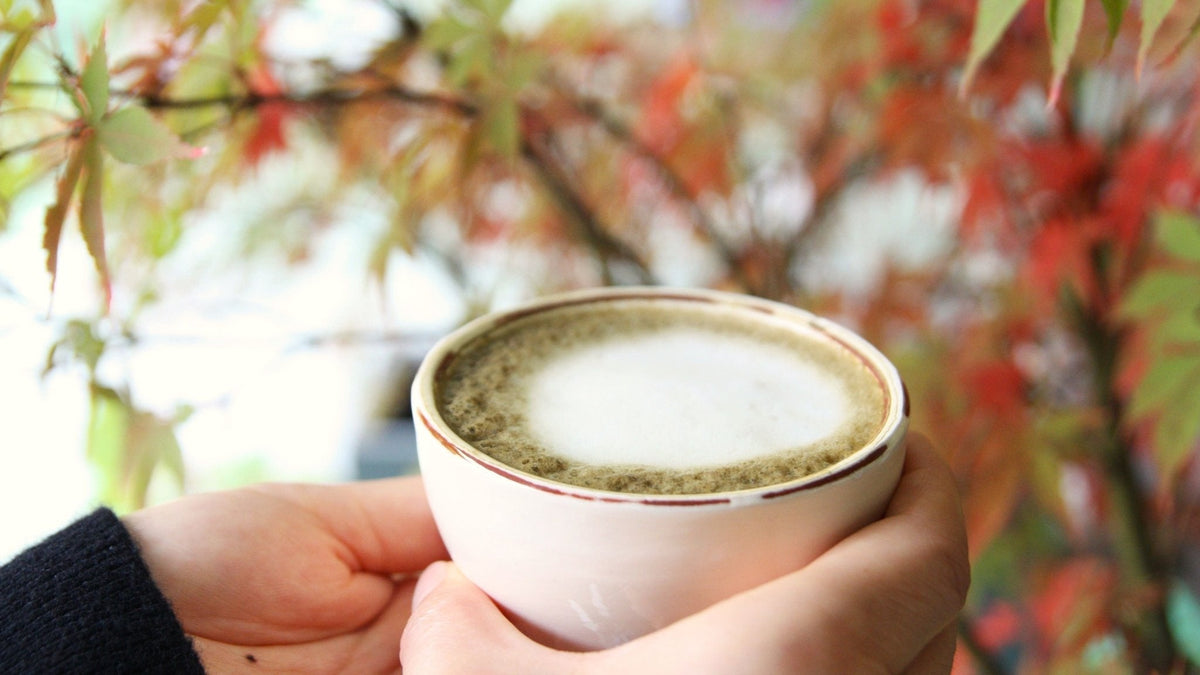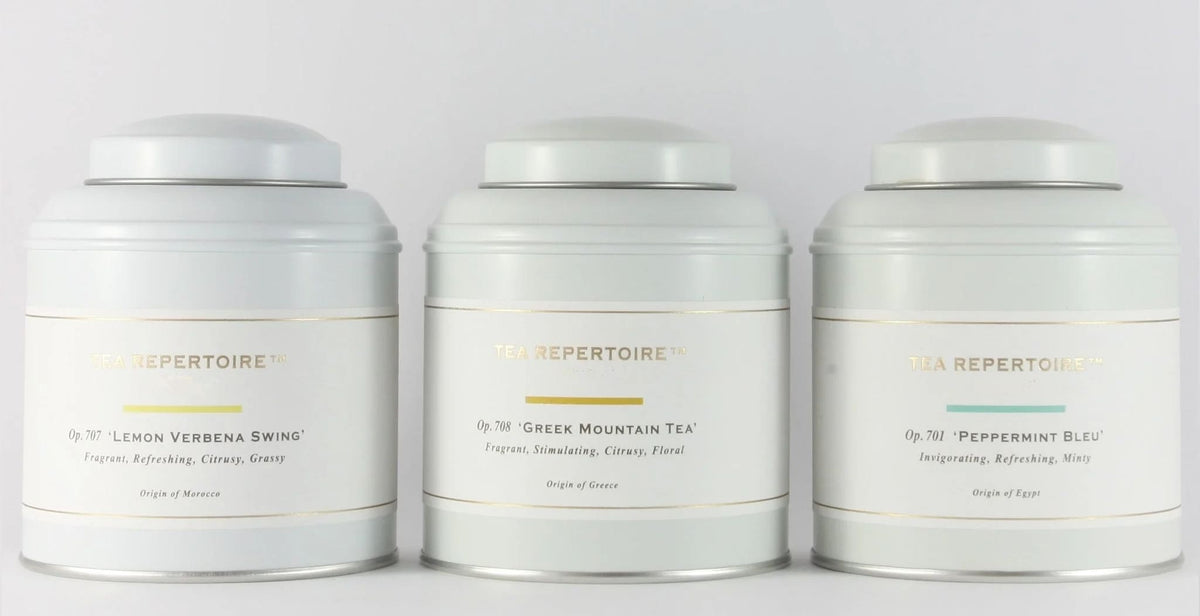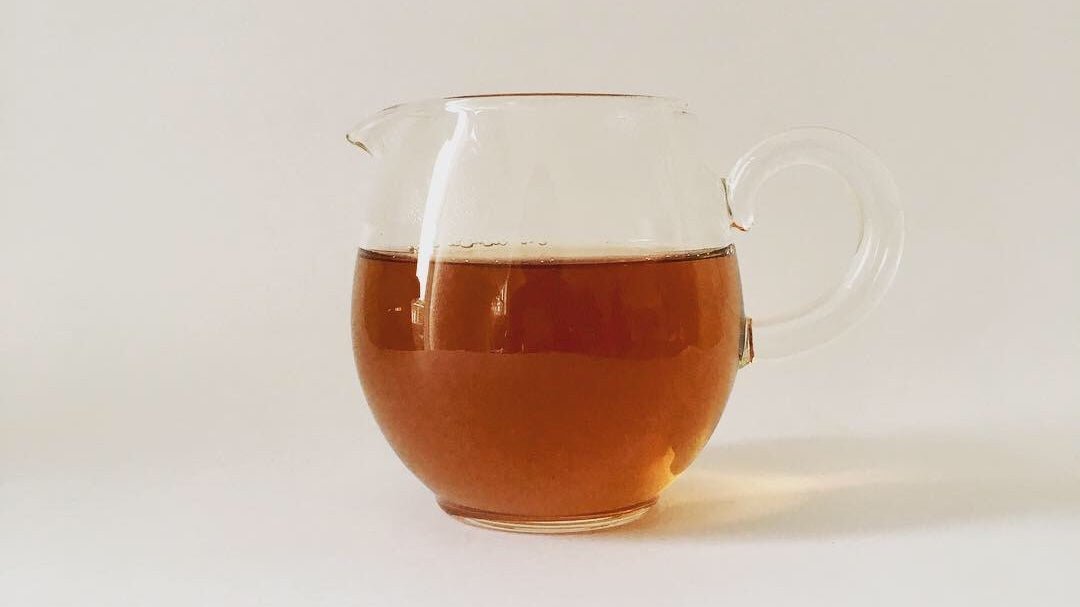What is Caffeine and How Much Caffeine is in your Tea?
Since we've launched Tea Repertoire, probably the most frequently asked question from other tea drinkers was which tea has the most/least caffeine. In this journal article, we explain all you need to know about caffeine in tea and what affects the amount of caffeine in your brew.
What is caffeine?
Caffeine is a naturally occurring chemical component in many plants, a type of methylxanthine alkaloid, which is composed of nitrogen atoms and uniformly produces bitter taste. Caffeine plays an important role as a natural defensive mechanism of tea plants by deterring its predators such as insects and herbivore animals from biting tea leaves and preventing further wounding of tea plants by producing bitter taste.
Does tea have less caffeine than coffee?
The answer is usually Yes. To make a cup of coffee, you need approx.15g of coffee beans whereas you'll need approx. 3-4g of tea leaves to make a cup of tea, so the caffeine intake from a cup of tea is usually much less than from a cup of coffee.
Which tea has most/least caffeine?
People often ask which tea has the least or most caffeine. Unfortunately, there is no straightforward answer to this question. Some proven scientific facts regarding caffeine content in tea are the followings: (1) Teas made from young buds and shoots contain higher level of caffeine than teas made from more mature tea leaves, as the buds and newly opened shoots contain more caffeine in order to protect themselves from predators to survive and grow. Thus, theoretically, white tea made from tender young buds have higher level of caffeine than other types of teas. However, this doesn't mean that a cup of white tea contains more caffeine than a cup of black tea, as actual amount of caffeine we extract from infused tea leaves vary a lot depending on the water temperature and steeping time, as caffeine is a water-soluble component. (2) Teas made from assamica variety contain more caffeine than sinensis variety, hence majority of African and Indian teas contain more caffeine than teas made from Sinensis variety tea plants grown in East Asia such as China, Taiwan, South Korea, Japan. Please note that fine, Darjeeling teas are mostly made from Sinensis variety, as British colonisers brought Chinese tea plants and planted in Darjeeling area, where its cool climate was suitable for the growth of Sinensis variety than Assamica variety. (3) Tea plants which are given a lot of nitrogen fertiliser (as in Japan) contain higher level of caffeine, as caffeine is an alkaloid composed of nitrogen atoms.
Caffeine Extraction depends on Water Temperature & Steeping Time
Having said that how much caffeine we extract in our cup of tea highly is actually dependent on the water temperature and steeping time while brewing tea, which type of tea would yield an infusion with the most caffeine? When we consider normal brewing time and water temperature for different tea types - that is to say, 70-80°C for 2 minutes for green tea (with the notable exception of Gyokuro, which requires much lower temperature), 85-90°C for 3-5 minutes for oolong tea, 95-100°C for 3-5 minutes for black tea, there is a higher probability that a cup of black tea that requires higher water temperature and longer steeping time will contain more caffeine than a cup of green tea, when we brew the same amount of tea leaves to make a cup of tea.
However, please note that matcha is an exception and it has much higher in caffeine than any other loose leaf teas that you drink as an infusion, as it's powdered green tea and you consume the whole tea leaves instead of infusing tea leaves to make a cup of tea. Consequently, the level of caffeine as well as antioxidants that you get from a cup of matcha is much higher than from other types of tea as well.
Matcha offers a unique caffeine experience. Learn more in our matcha guide for beginners, where we break down how it compares to coffee and other teas.
Looking for caffeine-free tea? Try herbal teas.
As a cup of tea contains much less caffeine than a cup of coffee, a cup of tea after dinner wouldn't affect your night sleep much, unless you're hyper-sensitive to caffeine. Nonetheless, if you're extremely caffeine-sensitve and would like to avoid caffeine in the evening, you can try caffeine-free, herbal teas. While normal orthodox teas made from Camellia Sinensis tea plants all contain a certain degree of caffeine, herbal teas, commonly known as tisane, made from dried flowers, leaves, fruits and roots of different herbs do not contain caffeine. Commonly known herbal teas in Europe are chamomile, peppermint, lemongrass and rooibos. At Tea Repertoire, we offer all of them in our Herbal Tea Collection, as well as some less-known tisanes such as Lemon Verbena, a popular after-dinner tisane in France, Olive Leaves from Spain and Greek Mountain Tea, much loved tisane in Greece.
If you'd like to know different health benefits of herbal teas and other tea types, read our Tea Journal Article on "Health Benefits of Tea".
Leave a comment
Comments will be approved before showing up.
Also in TEA JOURNAL

The ultimate guide to matcha
Looking to master matcha? Learn how to choose the best matcha powder, prepare traditional Koicha and Usucha, understand flavor notes, and unlock powerful health benefits in this all-in-one guide.

How to Make the Perfect Hojicha Latte – A Barista’s Guide from Tea Repertoire
Discover how to craft the perfect Hojicha Latte — a smooth, nutty Japanese roasted tea drink that’s as comforting as it is refined. In this barista-approved recipe, Tea Repertoire shares the secrets behind achieving the ideal balance between roasted depth and creamy sweetness using organic Hojicha powder sourced directly from Shizuoka, Japan.

A Guide to Gifting Tea
A Guide to Gifting Tea: The Perfect Tea for Every Taste
Looking for the ideal tea gift? Whether it’s smooth Taiwanese oolongs, fragrant Jasmine Phoenix Pearls, or caffeine-free herbal teas, Tea Repertoire offers thoughtful recommendations to delight any tea lover. From rare Yunnan Purple Buds to crowd-pleasing Black Forest, discover premium teas for every palate. Learn more.

